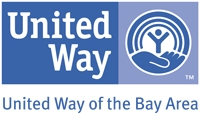San Francisco This is an interesting case in the non-profit world, and the decision has ramifications, though perhaps not exactly the ones that some might draw from the facts. PipeVine was a company created by the United Way of the Bay Area (UWBA) in 2000 to collect workplace donations made by employees and then to remit those donations to the intended charities. Three years later in 2003 PipeVine suddenly closed down leaving a lot of non-profits clamoring at the door desperately seeking their money. A court-ordered trustee reported then that PipeVine, for all its initial promise, has stuck these groups for more than $19 million. PipeVine had been spun-off from the UWBA parent organization, so UWBA said it was a tragedy but that they had no responsibility. An outfit called “Network for Good” based in Maryland that was left holding the bag for $4.8 million in the PipeVine collapse of course sued to try to recover the money that it needed to distribute. A California superior court judge, Robert Dondero, late this year rendered an 82-page decision in the matter holding that UWBA was not guilty of fraud and did not owe punitive damages, but did bear some responsibility for repayment.
UWBA had already put up $3.5 million against the claims voluntarily and had indicated that its own claims (almost $10 M of the total) would go at the end of the line for repayment. UWBA said that they were an independent corporation with a different board, staff, and so forth from PipeVine, therefore they should not be held responsible for the debts of PipeVine. UWBA has indicated that they would appeal when the judge’s decision becomes final.
Lawyers for non-profits are tearing their hair in some quarters. Does this argue that all of the firewalls between separate, but related corporations have to be rebuilt because this decision just rendered them asunder? What are the adequate asset protections, and in the light of PipeVine are they now adequate? Lawyers get paid to worry, and they even get paid more to rewrite what they have already written, so there is some scurrying about on this one, though I am not sure it is entirely warranted.
The UWBA was hardly an uninvolved and independent party, and its, shall we say “curious,” handling of the PipeVine separation are fundamental facts on which the judge’s decision no doubt turned. The judge found that UWBA undercapitalized the company at its formation, obliging it to use new charitable contributions to pay debts incurred to other charities. He also found that UWBA owed PipeVine $4.7 million from the outset but hid the debt in its books, seriously weakening the company. Despite warnings from its own chief financial officer, UWBA failed to pay PipeVine or act to solve its mounting problems — instead transferring key employees back to UWBA. This is hardly what I would call “arms length” handling of the problem. UWBA seems to have both picked the pocket of PipeVine from the outset and then jumped with its rats when there were signs the ship was sinking. The judge also found that UWBA manipulated the financial records to conceal its role after the fact. Not a pretty picture of a big time charity handling an offspring or smaller charities well.’
It always makes sense to make sure that protections are in place and firewalls that are meant to really keep out the fire can in fact do the job, but I would be careful in letting lawyers take the lessons of PipeVine too far. The best protection is still fair dealing. Any judge anywhere confronted by the amount of money, the impact on charities and the fact that charities ought to hold to a higher standard, and the pure and simple hanky-panky of the United Way of the Bay Area, would have found UWBA responsible for this mess in some way, shape, or form, and worried about the corporate protocols much, much later.
